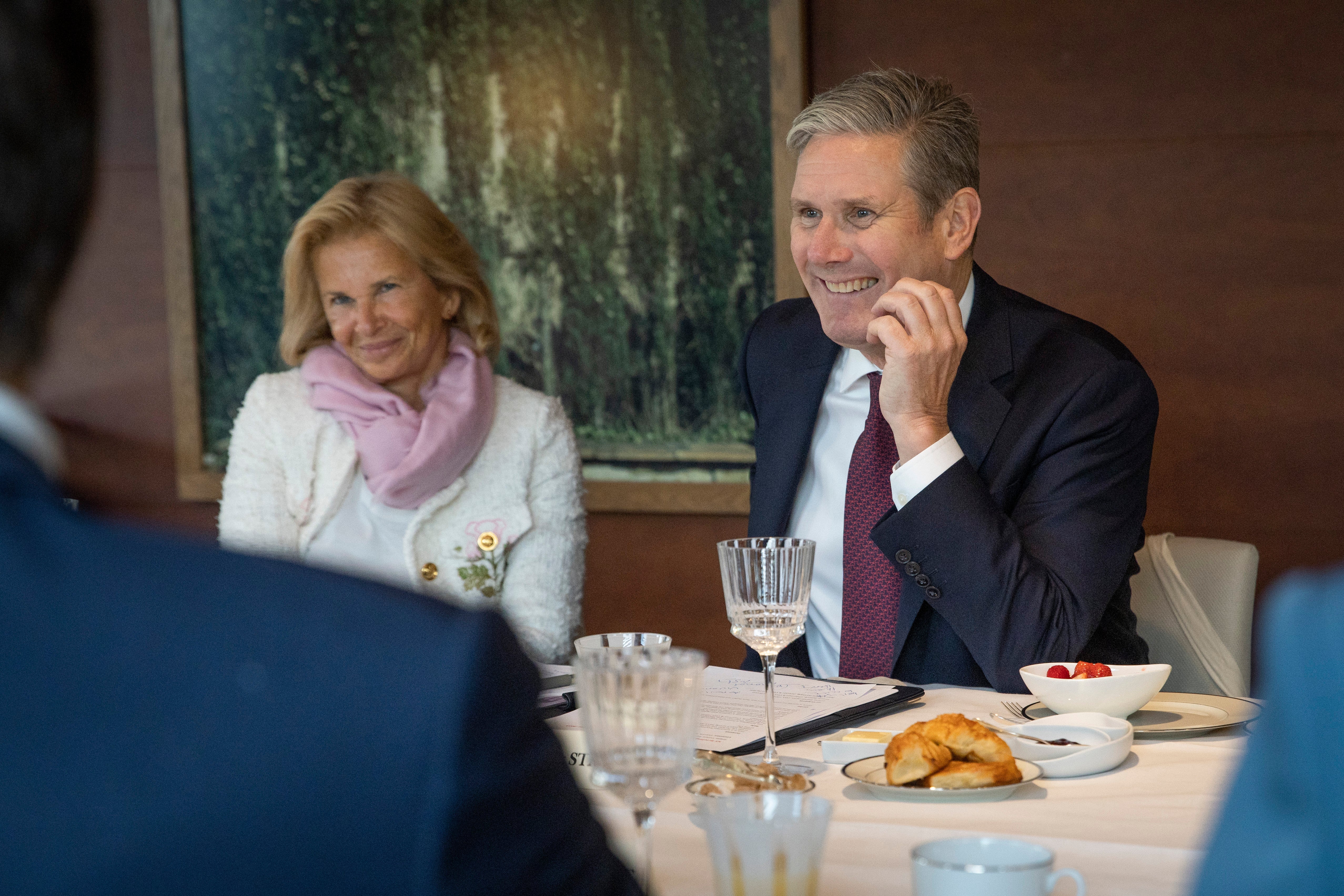‘Associate membership’ of the EU? It could be the deal we’ve always wanted
Keir Starmer has a great chance of tilting the Brexit debate decisively in his favour, writes John Rentoul. But he needs to be mindful of Labour Leavers...


The Franco-German plan for a “four-tier Europe” could have been a disaster for Keir Starmer as he turned up at the Elysee Palace for one of his most important meetings as prime-minister-in-waiting.
It risked confirming the claim by Brexiteers that the Labour leader is in cahoots with EU leaders to find a backdoor way for Britain to rejoin. Instead of accusing Starmer of wanting to reverse Brexit, they can now say that the question is how much of Brexit he wants to reverse.
But that question has lost a lot of its sting, now that British public opinion has shifted. Starmer has obviously decided that Brexit is seen as such a disaster, he has the space to take some risks by promising to work more closely with the EU. Given that the best that many Brexiteers can say about leaving the EU is that Boris Johnson handled it badly, Starmer thinks he has some scope to argue that he would make a better job of it.
That is Rishi Sunak’s pitch as well, and it is backed up by the new prime minister’s negotiating successes on the Windsor Framework for Northern Ireland and rejoining the Horizon science programme.
But Starmer can always hint that he would be able to do more, because he wouldn’t be held back by a radicalised Eurosceptic Tory party.
And now he can point to the possible flexibility of the EU side in discussing such things. When Starmer hinted at the weekend that he wanted to reopen the Brexit deal, saying “I do think we can have a closer trading relationship”, critics were quick to suggest that EU leaders would have no interest in protracted negotiations over new trading terms.
Suddenly, however, Emmanuel Macron seems to be prepared to redesign the whole architecture of Europe in previously unthinkable ways – while holding out the possibility of a special place for the UK in the plans.
Macron has often been given to grand ideas, but some of them become real: his idea of the European Political Community as an outer ring of EU influence has already been set up. And this new model is in a joint German-French paper. In other words, it comes from the Franco-German alliance that is traditionally the engine of the EU.
What is more, it seems to outline something that the UK had always wanted before Brexit: a multi-speed Europe, in which countries would be able to adopt as much or as little of the EU idea as they want.
The new paper proposes a four-tier EU, consisting of the European Political Community as the outer ring; then associate membership, which could include Switzerland and Norway in the EU single market, and possibly “even the UK”; then plain vanilla EU membership; and finally, an “inner core”, in which countries would give up the veto and accept majority voting for everything.
This is the kind of structure for which British governments always used to argue: we have no problem if some countries want to integrate more closely, our leaders used to say, but not everyone should be required to accept everything. Hence the opt-outs from the single currency and the passport-free zone that were negotiated not just by the UK, but by Denmark and other countries.
The Franco-German plan still poses a threat to Starmer. It remains the case that Leavers are overrepresented among the swing voters that Labour needs. There is no great mood of Brexit betrayal among them at the moment, but if they really thought that a Labour government would try to go back into the EU, they might quietly decide to stick with the devil they know.
This could be a problem for Starmer particularly, because the Conservatives can say, with some justice, “You cannot believe a word he says.” Starmer’s dramatic changes of policy have not damaged Labour so far, mainly because he has changed from unpopular policies to popular ones. But they lie like unexploded bombs beneath the Labour election campaign.
On the other hand, there is widespread acceptance, even among Leave voters, that maintaining good relations with the EU is in Britain’s interest. And the timing of today’s Franco-German plan reinforces the impression that the EU would be prepared to discuss more with Starmer than it would with Sunak.
As long as Starmer holds the line against accepting free movement of people as the price of admission to “tier three”, a form of semi-detached associate EU membership could be what a majority of the British people have always wanted.
It could be the compromise that most faithfully represents the true meaning of the 52-48 per cent vote seven years ago.






Join our commenting forum
Join thought-provoking conversations, follow other Independent readers and see their replies
Comments